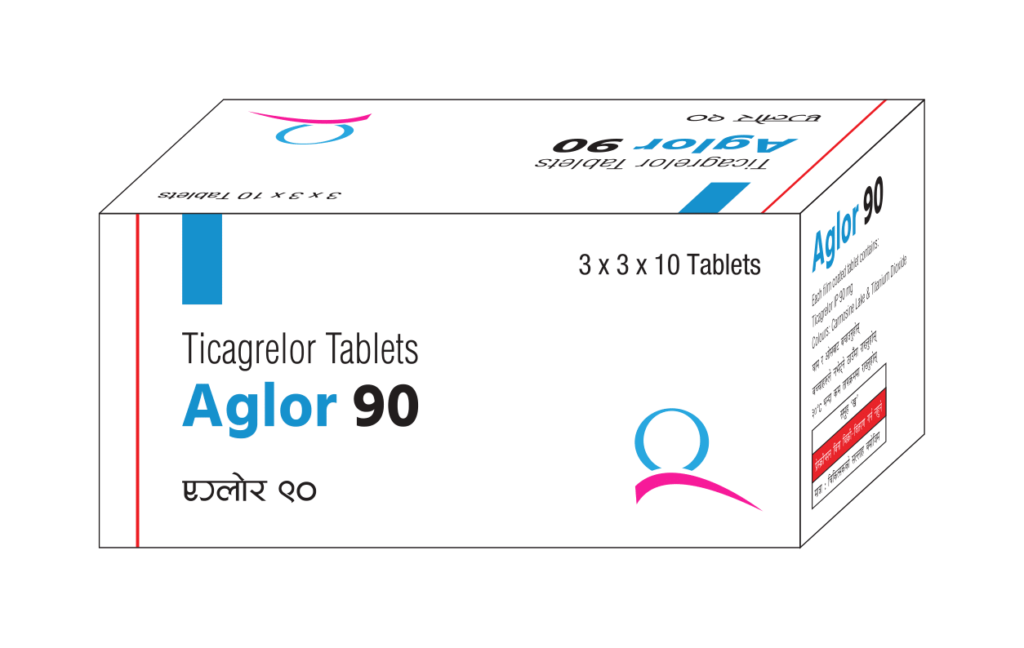Introducing
AGLOR
Ticagrelor 90mg Tablet
A New Found Horizon In The Antiplatelet Therapy.

AGLOR (Ticagrelor) Tablet for oral administration.
INDICATIONS AND USAGE
AGLOR is a P2Y 12 platelet inhibitor indicated to reduce the rate of cardiovascular death, myocardial infarction, and stroke in patients with acute coronary syndrome (ACS) or a history of myocardial infarction (MI). For at least the first 12 months following ACS, it is superior to clopidogrel. AGLOR also reduces the rate of stent thrombosis in patients who have been stented for treatment of ACS.
DOSAGE AND ADMINISTRATION
- In combination with aspirin for the prevention of atherothrombotic events in patients with acute coronary syndrome.
▶ Adult: Initially 180 mg for 1 dose, then 90 mg twice daily usually for up to 12 months followed by maintenance dose of 60 mg BD. - Alternative to clopidogrel in patients undergoing percutaneous coronary intervention
▶ Adult: 180 mg, as a single dose
DOSAGE FORMS AND STRENGTHS
- Ticagrelor 90 mg Film coated Tablet
CONTRAINDICATIONS
- History of intracranial hemorrhage
- Active pathological bleeding
- Hypersensitivity to Ticagrelor or any component of the product
WARNINGS AND PRECAUTIONS
- Dyspnea. Dyspnea resulting from Ticagrelor is self-limiting.
- Severe Hepatic Impairment: Likely increase in exposure to Ticagrelor.
- Risk of bleeding
- Concomitant Aspirin Maintenance Dose: Maintenance doses of aspirin above 100 mg decreased the effectiveness of Ticagrelor. Therefore, after the initial loading dose of aspirin, use Ticagrelor with a maintenance dose of aspirin of 75-100 mg
ADVERSE REACTIONS
Most common adverse reactions are bleeding 12% and dyspnea 14%.
DRUG INTERACTION
- Avoid use with strong CYP3A inhibitors or CYP3A inducers.
- Patients receiving more than 40 mg per day of simvastatin or lovastatin may be at increased risk of statin-related adverse effects.
- Monitor digoxin levels with initiation of or any change in Ticagrelor.
USE IN SPECIFIC POPULATIONS
- Pregnancy: Category C
- Nursing: It is not known whether Ticagrelor or its active metabolites are excreted in human milk. Because many drugs are excreted in human milk, and because of the potential for serious adverse reactions in nursing infants from Ticagrelor, a decision should be made whether to discontinue nursing or to discontinue Ticagrelor.
- Pediatric: The safety and effectiveness of Ticagrelor in pediatric patients have not been established.
- Geriatric: No overall differences in safety or effectiveness were observed between elderly and younger patients.
